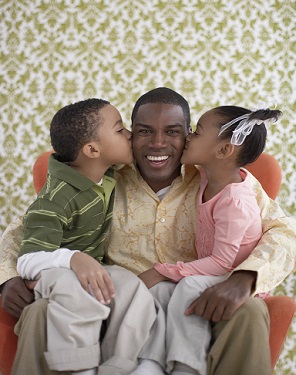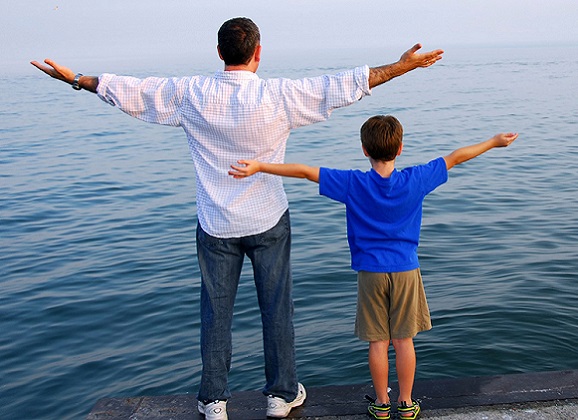 Thinking back over the years, Father’s Day is truly a symbolic time for all of us to reflect upon the meaning of fatherhood. Our fathers represent protection, dedication, work ethics, playfulness, advisors, and love. Fathers are instrumental in wanting to provide a better life for their families. It is extremely important and a vital role our fathers play in our lives.
Thinking back over the years, Father’s Day is truly a symbolic time for all of us to reflect upon the meaning of fatherhood. Our fathers represent protection, dedication, work ethics, playfulness, advisors, and love. Fathers are instrumental in wanting to provide a better life for their families. It is extremely important and a vital role our fathers play in our lives.
Although my father passed away many years ago, his memory and love is always with me. I miss his voice, his hug, his laughter, his wisdom and advice. No matter what I bought my father for Father’s Day, he always thanked me and seemed to appreciate the gesture over the object. I think about my own husband, who has been a father for almost 29 years and remember the love, activities, homemade cards and the years we spent honoring him on Father’s Day. He has been there for our daughters, both emotionally and financially. They still call him for advice and direction, even though they are all grown up.
How do fathers differ in their parenting roles from mothers?
- According to Ottawa University, communication skills differ- Mothers seem to use simpler words and more age appropriate language for their child’s level, whereas fathers often don’t adjust their language when they are talking to their child, except for an infant.
- Discipline– Child and family therapist Randall D. Turner states, “When a father disciplines, he is more likely to emphasize duty, fairness, justice, and the consequences of action.” Mothers tend to emphasize, sympathy, care, and helpfulness. Both forms and parenting styles can complement one another.
- Play– The research states that fathers engage in physical and tactile types of games than mothers. Such as rough-and-tumble play, tickling, and playing on a playground. They also engage in sports and other outdoor/athletic activities with their children. Mothers seem to play more non-tactile games, which involve talking and using fine motor skills and toys. Mothers seem to help the child promote their cognitive and social development.
- Predictability– Mothers seem to be more predictable than fathers, by picking up and holding their children in similar ways regardless of the circumstances. A father, may pick up and hold their child in various ways depending upon the circumstances.
- Nurturing– Mothers’ parenting styles are generally more in tune with the emotional connection between the child and herself. Mothers tend to verbalize more often with their children than fathers do, by talking out the issues when involving discipline. Mothers tend to hold, comfort, and nurture their child physically as well as feeding and caring for their child. A father’s style, is generally more focused on having higher expectations for his children and wanting them to deliver theses specific goals. A father seems to guide and prepare his child to cope in the “real world” by imposing consequences first, and talking after a disciplinary event later.
- A father’s sacrifices, according to research, tend to be “family focused” versus individually focused.
Remind your children that Father’s Day is all about dad, not mom or themselves if they are old enough to understand.
Ideas for your child to do for Dad on Father’s Day:
- Take the time to “honor” your father on Father’s Day.
- Verbalize how much you love him by expressing it through hugs and kisses or demonstrating a way to give back.
- Remind the children not to fight or argue on this day, but to focus on doing nice things for their dad and asking him what he wants to do.
- If money is tight, have the children make their own handmade cards, bake him a favorite dessert, or serve breakfast in bed with a favorite book, newspaper, or magazine.
- Purchase an item that dad has asked for instead of what you may want to buy him.
- Share favorite funny stories about dad with him to remind him how much you care and remember.
If you’re older, you may plan your own father’s day “one on one” with your dad as well. If you do not live in town, remember to call, Skype, or send him a special gift or treat. If the family is divorced, put your feelings aside as an ex-wife and have your child do something special for their father. This will teach them about forgiveness and kindness.
Thank you and Happy Father’s Day!

















